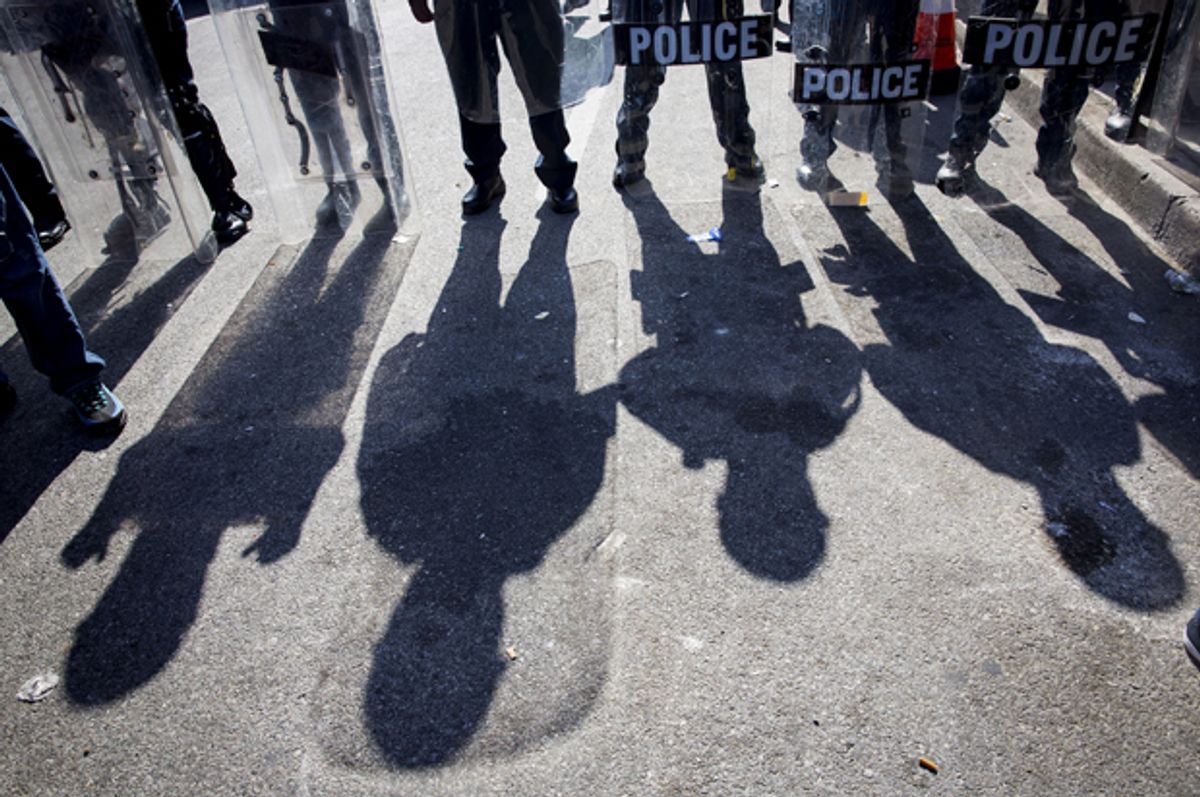Alton Sterling’s 15-year-old son breaking down and crying during a press conference in the wake of the killing of his father by a Baton Rouge police officer.
A 4-year-old girl in the back seat of a car witnessing a police officer kill her mother’s boyfriend.
These are things that my white children will never experience. They don’t have to worry about their father being slammed to the ground by officers of the law and then shot. They don’t have to worry about me being pulled over and then shot through an open car window for carrying a licensed concealed weapon.
The preparatory narrative that many black adults must have with the younger generation explaining how they should react when a police officer stops them. My children will never have to prepare for the inevitability of being harassed or harmed by the law because of the color of their skin.
And the true sorrow of these United States is that it’s likely that children like Trayvon Martin, Jordan Davis, and Tamir Rice heard “The Talk,” but to no avail—white supremacy and American violence was much bigger than them.
For over a decade now I have taught a survey of American literature, from its beginnings to 1900, at Denison University. Teaching this course is a constant reminder to me of how violent our American narrative is. It is also a reminder of how much work has been done to change that and how much work we have to do.
I always end the course with W.E.B. DuBois who addresses a future America by announcing in "The Souls of Black Folk" that race would be the central problem of the 20th Century. For DuBois being a “problem” is both a struggle and a challenge, but by focusing on that dilemma he tells readers that in this country black people must be ever-mindful of white supremacy.
"The Souls of Black Folk," like much of DuBois’s work, is infused with the kind of pragmatic realism embedded in “The Talk.” DuBois had to be pragmatic, had to live in the real world, because he lived in Atlanta at a time when it was deemed okay to display the knuckle bones of a black man in a grocery store—a man named Samuel Hose who had been beaten, had his fingers, ears, and genitals cut off, his face skinned, and then was set on fire.
DuBois is not the only example of a black writer engaging with the future in the present in order to prepare a younger generation for what they will encounter. So many African American writers are haunted by this struggle that it seems like a central trope in African American literature. It’s found in the work of Ernest Gaines, Toni Morrison, James Baldwin, Frederick Douglass, and even in the work of eighteenth-century writers like Prince Hall. It likely resonates in oral histories shared among enslaved peoples. Ta-Nehisi Coates’s letter to his son, "Between the World and Me," carries this trope into the present.
The message is clear: you must prepare to live in a racist world. You must be on guard. You must always know that your life is not your own. To not be so is to be naïve and short-sighted; it is to put yourself and your community in jeopardy.
There is no such trope in white American literature, and there is no such thing as “The Talk” for white children.
The story that most white children hear in America is noticeably different — it is one of progress, of comfort, of the false idea that we are moving gracefully toward a more multicultural society from a satisfactory, comfortable present.
And yet, the violence of slavery and white supremacy have defined and shaped our present; they have shaped what it means to be white in this country. These violent legacies persist in our systems of policing and education, housing and health care. They persist in the sorrow felt by Alton Sterling’s son and in the experience, the burden, that 4-year old girl will have to carry with her forever.
As long as that kind of violence pervades our culture, we are lost.
And until white people understand what has been so absent from their realities, from their educations, we can’t possibly understand or work as allies. Until white people can talk to their children about those things—about the violence we are shielded from—there’s no future.

Shares